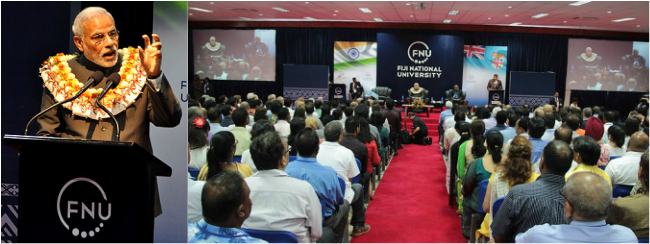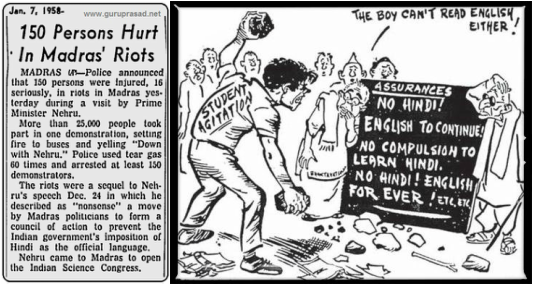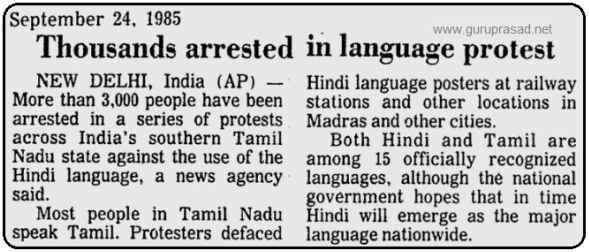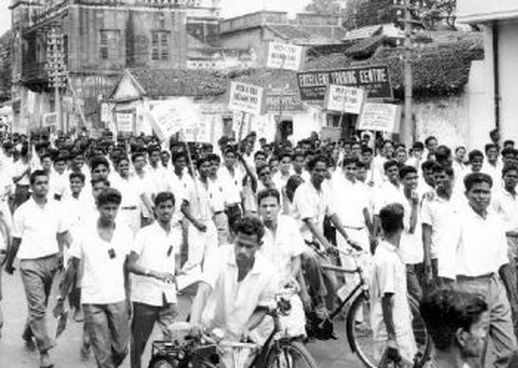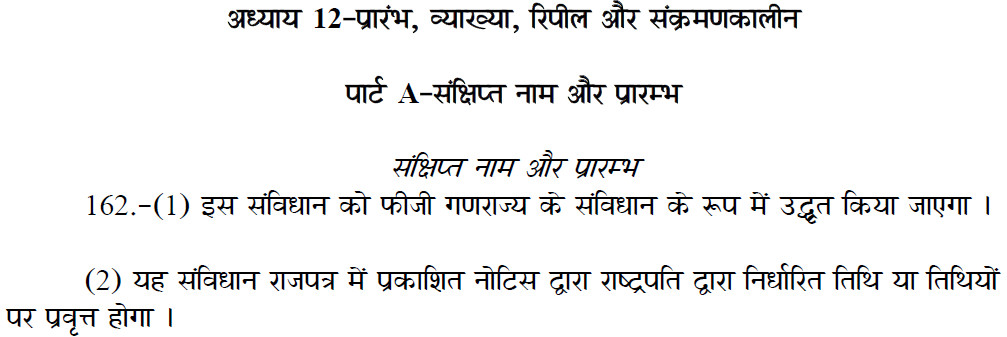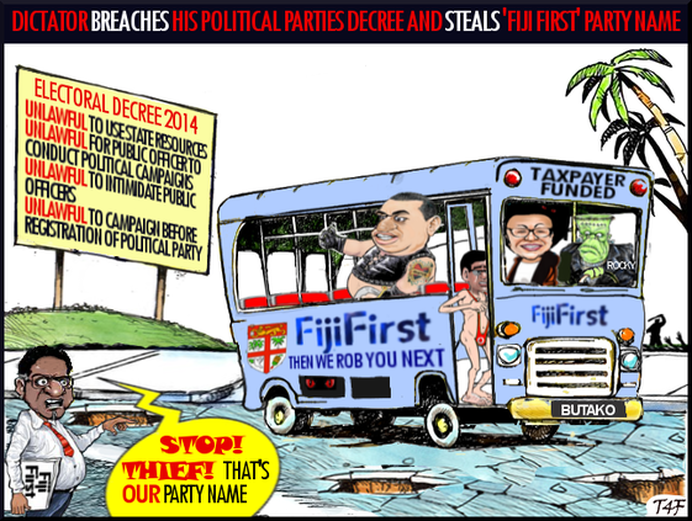"The world is what it is; men who are nothing, who allow themselves to become nothing, have no place in it." - The Indo-Trinidanian novelist and Nobel laureate V. S. Naipaul in A Bend In The River.
Fijileaks: Cowardice, Collaboration, and Timidity of native Fijians in the face of Bainimarama's dictatorship will see Fijians disappear as a RACE!

Wadan Narsey has called the decision by the Bainimarama Government to ban the use of the indigenous Fijian language in parliament “extraordinary and unilateral”. Is there another Parliament in the world where the language of the majority of indigenous people is banned? Narsey points out all of the contradictions in this policy, one of which is the fact that Bainimarama regularly addresses the theoretically multi-racial military in the language that is the mother tongue of 95% of its members. And when he does so, there is no translation for the benefit of those who don’t understand what he’s saying. Prof Narsey has called a motion to rescind this silly rule and allow the three major languages to be spoken in parliament.
By Professor Wadan Narsey
An extraordinary and unilateral Bainimarama Government decision that has not been publicly debated at all, has been the banning of the use of the indigenous Fijian language in Parliament. This is quite surprising given that indigenous Fijians are the majority of the population of Fiji. The parliament is the supreme legislative body of any country, where the elected representatives of the people meet to discuss governance and public policy issues.
Historically, Fiji parliamentarians could speak in any of Fiji’s three main languages (English, Fijian or Hindi) with simultaneous translations provided by the Parliamentary Secretariat. Of course, English is a common language in Fiji, bequeathed to us by the oft-maligned British colonials, and it would probably be the preferred language in Parliament. But that should not preclude parliamentarians speaking in Fijian or Hindustani. if that is what they are comfortable with, or if that is the language that their particular electorates would prefer to be communicated with. There are many issues here, including: the accountability of the elected parliamentarians to their voters, international practices, the rights of indigenous peoples in preserving their culture and language, and the strange political agenda of the Bainimarama Government.
The language of democracy
We have often heard the Bainimarama Government allege that for the first time in its history, Fiji has a genuinely democratic system, with parliamentarians elected by the people and accountable to them, with every voter being equal. How often have we heard that democracy does not end, with the insertion of a ballot paper into the ballot box. We are told that in genuine democracies, candidates not only present themselves and their policies to the voters, but the voters then follow what their elected candidates say and do in parliament, all to be taken into account at the next elections.
But what language will the elected parliamentarian be accountable in, when the live broadcasts are being made to the voters of Fiji? If they are forced to speak only in English, large numbers of voters will have been prevented from understanding what a particular parliamentarian is saying. They will need a translation through the media and there is no guarantee that the correct translation will reach the voters who supported that parliamentarian.
The elections campaigning languages
Nowhere was this issue so clarified as when candidates were seeking the votes of the electorate. How many times did we see during the election campaigns that candidates very wisely spoke to local communities in the languages they preferred. While many, especially the younger generation are comfortable with English, large numbers of the older generations are only comfortable with indigenous Fijian or Hindustani.
We therefore saw Indo-Fijian candidates speak in Hindi to Indo-Fijian communities. We saw Bainimarama himself speak to villagers in Fijian, because that was the language they were comfortable in. Why would the same Bainimarama then insist that the parliamentarian, once elected, must not be allowed to speak in that language in parliament?
International practice
Everywhere, parliaments allow their elected members to speak in whatever is the dominant language of the people. The European Parliament allows 24 languages, although English is the preferred language. Of relevance given the recent political hype about Fiji and India “learning from each other”, there are 22 official languages recognized by the Lok Sabha, the Indian House of Representatives.
Indian Prime Minister Modi, when he spoke a few days ago at the Fiji National University, spoke in Hindi, to the delight of the mostly Indo-Fijian audience (some 80 percent according to some estimates). While there was an appearance of spontaneity, the reality is that the Machiavellian organizers had preplanned this, and tried to prepare for it by ensuring that non-Hindi speakers all had ear-sets to listen to translations into English.
The exercise according to some, was a failure, and many non-Hindi speakers could not listen to any English translation. But the point is that it was perfectly acceptable to the Bainimarama Government that the Indian Prime Minister speak in whatever language the majority of his audience was comfortable with- in this case, Hindi, even if a hundred percent of that audience would have understood Modi perfectly had he spoken in English. Bainimarama himself understands this language imperative when he speaks to an audience which is far more important to him than the Fiji Parliament- i.e. the soldiers of the Republic of Fiji Military Forces.
Bainimarama and the RFMF
Over and over on TV, we have seen Bainimarama choosing to speak to the RFMF troops in the indigenous Fijian language, whether in Fiji or in the Middle East.
So also does Brigadier Tikoitoga and his senior officers speak to the soldiers in Fijian, because that is what their listeners are comfortable with.
Bainimarama does not insist that the language of communication to his RFMF soldiers must be English.
So why is the Fijian language banned from Parliament?
The Bainimarama agenda
We need to remember that the Bainimarama Government’s strange ruling on languages started with their political vendetta against the SDL, by banning party names that were “Fijian”.
So Soqosoqo Duavata Ni Lewenivanua (SDL) was forced to become Social Democratic Liberal Party (SODELPA) even though the rational acronym would have been SDLP. But that would have been too close to SDL and also banned. There was a strange manifestation of this madness in education, when some schools in Fiji were forced to change from their allegedly “ethnic” names to allegedly “neutral” names. It was hilarious therefore to see “Indian College” with the long history associated with that name, being forced to adopt the allegedly non-ethnic name of “Jay Narayan College”. How un-Indian is that? Such policies by the Bainimarama Government totally contradict the UN Declaration on the Rights of Indigenous People (UNDRIP).
UN Declaration on the Rights of Indigenous Peoples
The UNDRIP, while accepting the fundamental equality of all peoples, recognizes the historical marginalization of indigenous peoples the world over and fully supports the rights of indigenous peoples to organize themselves as a group for political, economic, social and cultural enhancements.
Article 5 of UNDRIP states clearly that indigenous people “have the right to maintain and strengthen their distinct political, legal, economic, social and cultural institutions” which includes their languages and their names. Part of the attempt to preserve the Fijian culture is to officially recognize the Fijian language as a legitimate means of communication in the highest body in the country- the Fiji Parliament. It would not be difficult to argue that many of the actions taken by the Bainimarama Government in forcing changes on Fijian people and institutions without their agreement, including the banning of Fijian names for political parties and the banning of the Fijian language from Parliament, blatantly contradicts the UNDRIP to which Fiji is a signatory.
Preserving the indigenous language
The banning the indigenous Fijian language from Parliament, is especially insensitive and irrational given that the indigenous Fijians are a clear majority of the population of Fiji, and an increasing proportion because of the lower fertility of Indo-Fijian women, and continuing high rate of Indo-Fijian emigration. .
Where in the world would the language of the majority of people, get banned from the highest legislative body in the country?
If any government attempted this in India or Germany or France, they would face protests and violence in the streets, and certain suicide at the polls.
It is a puzzle indeed.
What should concerned parliamentarians do?
The Speaker of the House, the Secretary to Parliament, the majority of the Government bench and the majority on the opposition benches, are indigenous Fijians.
What will the Speaker of the House do if any parliamentarian insists on speaking in the indigenous Fijian language (or Fiji Hindi)? Keep expelling them from the House, and give easy and exciting news footage to the television stations?
Perhaps Opposition MPs could move a motion that parliamentarians be allowed to speak in whichever of the three languages they are comfortable.
If they had a secret ballot, they might even get the support of a number of Fiji First Party parliamentarians.

On January 26, 1965, Republic Day, in pursuant of Article 343 of the Constitution of India, Hindi became the sole official language of India. The South Indians (i.e. Madras State) lashed out against the Indian government's language policy and proclaimed the determination of the Tamil people to resist Hindi as an 'unwise, unjust and discriminatory tyranny'. The South Indians rose up against 'Hindi Imperialism' resulting in large-scale riots. Let us remind the Bainimarama government of Nehru's words: "----There must be no imposition..."
AND don't forget the linguistic roots of the Sri Lankan civil war: the Sinhala Only Act of 1956 by majority Sinhalese against minority Tamils
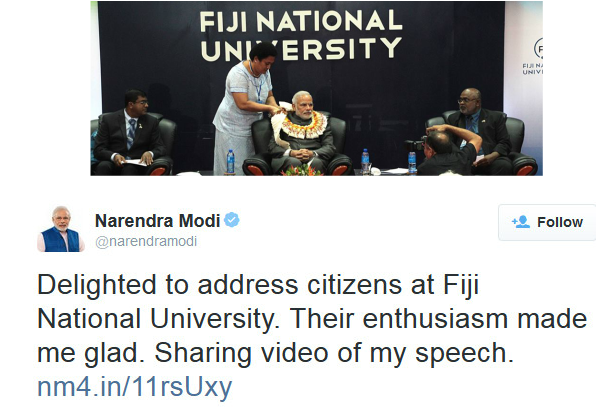
Modi told FNU that India to play role of 'Visvaguru' to world; Modi said the coming age would be the age of knowledge, and India would once again perform the role of "Visvaguru". He said India's ancient sages had spoken of India's global responsibility, and the coming "Gyan Yug" would see India play a pivotal role, using the strengths of its
democracy and demographic dividend.
 Anit Singh
Anit Singh Comment by Anit Singh whose party name FijiFirst was stolen by Khaiyum/Bainimarama
I convey easily what lingers on the surface usually in the English Language, no problems, but to convey the real feel of my inner-most, I usually resort to my mother-tongue, Fiji-Hindi.
For example, I like calling Aiyaz and Baimimarama –‘Intellectual Property Chors’ better and rather than calling them ‘Intellectual Property Thieves’. Now a ‘Thief’ or a ‘Butako’ or a ‘Chor’ may mean the same thing but the difference is in the feelings, evoking the correct sphere of your emotional intelligence, you see.
The word CHOR, in my mother-tongue, for me is more devious, more cunning, more conniving and more criminal …far more ‘low-down’ than the ordinary English word ‘Thief ‘would ever be.
The word CHOR for me … conjures the correct images, of yeh...the pitiable CHORS that Bainimarama and Aiyaz actually are- behind their fake and put-on persona of respectability, with their bull-shit RIGGED titles and fancy suits and stupid pink ties.
Them being ‘Intellectual Property CHORS, is a statement of FACT – an undeniable TRUTH.
